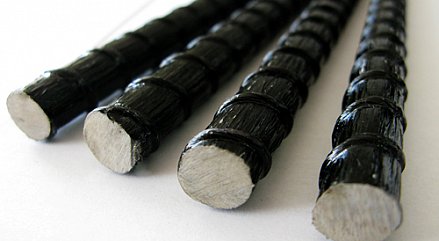- June 13, 2024
- Posted by: wellcoindustries
- Category: Rebar
Introduction
Basalt Fiber Reinforced Polymer (FRP) rebar is revolutionizing the construction industry. Known for its superior durability, resistance to corrosion, and high tensile strength, Basalt FRP rebar is an ideal alternative to traditional steel reinforcement. This article explores why Basalt FRP rebar is the preferred choice for many construction projects and delves into insights from leading manufacturers.

Introduction to Basalt FRP Rebar
Basalt Fiber Reinforced Polymer (FRP) rebar is a composite material made from basalt rock fibers embedded in a polymer matrix. This combination results in a reinforcement bar that is incredibly strong, durable, and resistant to environmental degradation.
What is Basalt?
Basalt is an igneous rock formed from the rapid cooling of basaltic lava. It is abundant in nature and known for its high performance in extreme conditions. Basalt fibers derived from this rock are used to create the reinforcement bars.
Manufacturing Process of Basalt FRP Rebar
The manufacturing process involves melting basalt rock at high temperatures to produce continuous fibers. These fibers are then combined with a polymer matrix through a pultrusion process to create the FRP rebar. This method ensures that the rebar maintains high tensile strength and durability.
Properties of Basalt FRP Rebar
Basalt FRP rebar boasts several outstanding properties, including:
- Corrosion Resistance: Unlike steel, basalt FRP rebar does not rust, making it ideal for environments exposed to moisture and chemicals.
- Lightweight: It is significantly lighter than steel, reducing transportation and handling costs.
- High Tensile Strength: It offers higher tensile strength compared to traditional steel rebar.
- Thermal Stability: Basalt FRP rebar can withstand extreme temperatures without losing its integrity.
- Non-Magnetic: This property makes it suitable for applications requiring non-conductive materials.
Advantages of Basalt FRP Rebar
Corrosion Resistance
One of the most significant advantages of Basalt FRP rebar is its resistance to corrosion. Traditional steel rebar is prone to rusting when exposed to moisture, leading to structural weaknesses over time. Basalt FRP rebar, on the other hand, remains unaffected by water, chemicals, and other corrosive elements, ensuring the longevity of the structure.
Lightweight
Basalt FRP rebar is much lighter than steel rebar, typically weighing about one-quarter of steel. This reduction in weight makes it easier to transport and handle, reducing labor costs and improving efficiency on construction sites.
High Tensile Strength
The tensile strength of Basalt FRP rebar is substantially higher than that of steel. This means that it can withstand greater forces without breaking, providing a safer and more reliable reinforcement solution for a variety of construction projects.
Thermal Stability
Basalt FRP rebar maintains its properties over a wide range of temperatures, making it suitable for use in environments with extreme thermal conditions. Whether it’s the scorching heat of the desert or the freezing temperatures of the Arctic, Basalt FRP rebar performs consistently.
Non-Magnetic Properties
The non-magnetic nature of Basalt FRP rebar makes it an excellent choice for applications where electromagnetic interference needs to be minimized, such as in hospitals, laboratories, and certain industrial settings.
Applications of Basalt FRP Rebar
Infrastructure Projects
Basalt FRP rebar is increasingly being used in infrastructure projects such as highways, bridges, and tunnels. Its durability and resistance to environmental factors make it ideal for these long-term investments.
Marine Construction
In marine environments, structures are constantly exposed to saltwater and other corrosive elements. Basalt FRP rebar’s resistance to corrosion makes it a superior choice for docks, piers, and underwater structures.
Building Construction
From high-rise buildings to residential homes, Basalt FRP rebar is used to reinforce concrete structures, providing enhanced strength and longevity.
Bridges and Tunnels
Bridges and tunnels require materials that can withstand constant stress and harsh conditions. Basalt FRP rebar meets these demands with its high tensile strength and resistance to environmental degradation.
Road Construction
In road construction, the use of Basalt FRP rebar helps to extend the lifespan of roads by preventing the formation of cracks and potholes, ensuring smoother and safer surfaces for longer periods.
Conclusion
Basalt FRP rebar is transforming the construction industry with its numerous advantages over traditional steel rebar. Its superior strength, durability, and resistance to environmental factors make it an ideal choice for a wide range of applications. Insights from leading manufacturers highlight the technological innovations and future potential of this remarkable material. As more projects adopt Basalt FRP rebar, the benefits of this advanced reinforcement solution become increasingly apparent.
